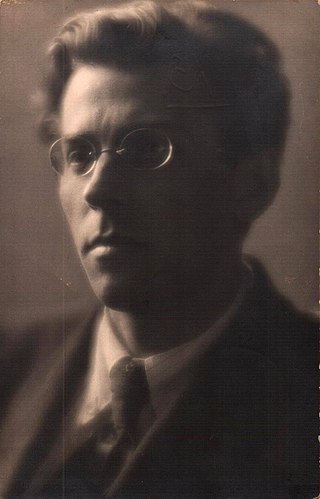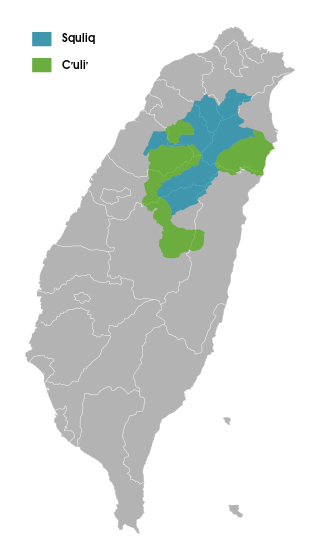Related Research Articles

In computer programming, assembly language, often referred to simply as assembly and commonly abbreviated as ASM or asm, is any low-level programming language with a very strong correspondence between the instructions in the language and the architecture's machine code instructions. Assembly language usually has one statement per machine instruction (1:1), but constants, comments, assembler directives, symbolic labels of, e.g., memory locations, registers, and macros are generally also supported.

Turkish is the most widely spoken of the Turkic languages, with around 90 million speakers. It is the national language of Turkey and one of two official languages of Cyprus. Significant smaller groups of Turkish speakers also exist in Germany, Austria, Bulgaria, North Macedonia, Greece, other parts of Europe, the South Caucasus, and some parts of Central Asia, Iraq, and Syria. Turkish is the 18th most spoken language in the world.

X or x is the twenty-fourth letter of the Latin alphabet, used in the modern English alphabet, the alphabets of other western European languages and others worldwide. Its name in English is ex, plural exes.

Adyghe is a Northwest Caucasian language spoken by the western subgroups of Circassians. It is spoken mainly in Russia, as well as in Turkey, Jordan, Syria and Israel, where Circassians settled after the Circassian genocide by the Russian Empire. It is closely related to the Kabardian language, though some reject the distinction between the two languages in favor of both being dialects of a unitary Circassian language.

Letter case is the distinction between the letters that are in larger uppercase or capitals and smaller lowercase in the written representation of certain languages. The writing systems that distinguish between the upper- and lowercase have two parallel sets of letters: each in the majuscule set has a counterpart in the minuscule set. Some counterpart letters have the same shape, and differ only in size, but for others the shapes are different. The two case variants are alternative representations of the same letter: they have the same name and pronunciation and are typically treated identically when sorting in alphabetical order.

Greenlandic is an Eskimo–Aleut language with about 57,000 speakers, mostly Greenlandic Inuit in Greenland. It is closely related to the Inuit languages in Canada such as Inuktitut. It is the most widely spoken Eskimo–Aleut language. In June 2009, the government of Greenland, the Naalakkersuisut, made Greenlandic the sole official language of the autonomous territory, to strengthen it in the face of competition from the colonial language, Danish. The main variety is Kalaallisut, or West Greenlandic. The second variety is Tunumiit oraasiat, or East Greenlandic. The language of the Inughuit of Greenland, Inuktun or Polar Eskimo, is a recent arrival and a dialect of Inuktitut.

The Munda people are an Austroasiatic-speaking ethnic group of the Indian subcontinent. They speak Mundari as their native language, which belongs to the Munda subgroup of Austroasiatic languages. The Munda are found mainly concentrated in the south and East Chhotanagpur Plateau region of Jharkhand, Odisha and West Bengal. The Munda also reside in adjacent areas of Madhya Pradesh as well as in portions of Bangladesh, Nepal, and the Indian state of Tripura. They are one of India's largest scheduled tribes. Munda people in Tripura are also known as Mura. In the Kolhan region of Jharkhand the Munda people are often called Tamadia by other communities.

Pavlo Hryhorovych Tychyna was a major Ukrainian poet, translator, publicist, public activist, academician, and statesman. He composed the lyrics to the Anthem of the Ukrainian Soviet Socialist Republic.

Palula and also known as Ashreti (Aćharêtâʹ) or Dangarikwar, is an Indo-Aryan language spoken by approximately 10,000 people in the valleys of Ashret and Biori, as well as in the village of Puri in the Shishi valley and at least by a portion of the population in the village Kalkatak, in the Chitral District of Khyber Pakhtunkhwa province of Pakistan.

The Atayal language is an Austronesian language spoken by the Atayal people of Taiwan. Squliq and C’uli’ (Ts’ole’) are two major dialects. Mayrinax and Pa’kuali’, two subdialects of C’uli’, are unique among Atayal dialects in having male and female register distinctions in their vocabulary.
Ban Khor Sign Language is a village sign language used by at least 400 people of a rice-farming community in the village of Ban Khor in a remote area of Isan. Known locally as pasa kidd, it developed in the 1930s due to a high number of deaf people. Estimated number of users in 2009 was 16 deaf and approximately 400 hearing out of 2741 villagers. It is a language isolate, independent of the other sign languages of Thailand such as Old Bangkok Sign Language and the national Thai Sign Language.

Tsou is an Austronesian language spoken by the Tsou people of Taiwan. Tsou is a threatened language; however, this status is uncertain. Its speakers are located in the west-central mountains southeast of the Chiayi/Alishan area in Taiwan.

Tsakhur is a Lezgic language spoken by the Tsakhurs in northern Azerbaijan and southwestern Dagestan (Russia). It is spoken by about 11,700 people in Azerbaijan and by about 10,600 people in Russia. The word Tsakhur derives from the name of a Dagestani village where speakers of this language make up the majority.

The Tati language is a Northwestern Iranian language spoken by the Tat people of Iran which is closely related to other languages such as Talysh, Zaza, Mazandarani and Gilaki.
Nepalese Sign Language or Nepali Sign Language is the main sign language of Nepal. It is a partially standardized language based informally on the variety used in Kathmandu, with some input from varieties from Pokhara and elsewhere. As an indigenous sign language, it is not related to oral Nepali. The Nepali Constitution of 2015 specifically mentions the right to have education in Sign Language for the deaf. Likewise, the newly passed Disability Rights Act of 2072 BS defined language to include "spoken and sign languages and other forms of speechless language." in practice it is recognized by the Ministry of Education and the Ministry of Women, Children and Social Welfare, and is used in all schools for the deaf. In addition, there is legislation underway in Nepal which, in line with the UN Convention on the Rights of Persons with Disabilities (UNCRPD) which Nepal has ratified, should give Nepalese Sign Language equal status with the oral languages of the country.

Jad (Dzad), also known as Bhotia and Tchhongsa, is a language spoken by a community of about 300 in the states of Uttarakhand and Himachal Pradesh, in India. It is spoken in several villages, and the three major villages are Jadhang, Nelang and Pulam Sumda in the Harsil sub-division of the Uttarkashi District. Jad is closely related to the Lahuli–Spiti language, which is another Tibetic language. Jad is spoken alongside Garhwali and Hindi. Code switching between Jad and Garhwali is very common. The language borrows some vocabulary from both Hindi and Garhwali. It is primarily a spoken language.

The Gunjala Gondi lipi or Gunjala Gondi script is a script used to write the Gondi language, a Dravidian language spoken by the Gond people of northern Telangana, eastern Maharashtra, southeastern Madhya Pradesh, and Chhattisgarh. Approximately a dozen manuscripts in the script were recovered from Gunjala, a Gond village in Adilabad district of Telangana, by a team of researchers from the University of Hyderabad, led by Professor Jayadheer Tirumala Rao. The script and preliminary font were unveiled in early 2014.

Go_A is a Ukrainian folktronica band formed in 2012. The band represented Ukraine in the Eurovision Song Contest 2021, performing "Shum", and placed fifth in the final.
In Belarus, production, distribution, promotion, exhibition as well as possession with intent of distribution or promotion of pornographic materials or objects of pornographic nature is punishable by Belarusian criminal law and results in fine, compulsory community service, or up to 4 years in prison.

Oleh Romanovych Psiuk, also known by his stage name Psiuchyi Syn, is a Ukrainian rapper and songwriter, who is the founder and frontman of the rap group Kalush.
References
- ↑ Marina Pantcheva. "The Syntax and Semantics of Paths" (PDF). Archived from the original (PDF) on 2012-02-13. Retrieved 22 Dec 2011.
- ↑ http://proceedings.usu.ru/?base=mag/0065(01_$03-2009)&xsln=showArticle.xslt&id=a10&doc=../content.jsp [ dead link ]